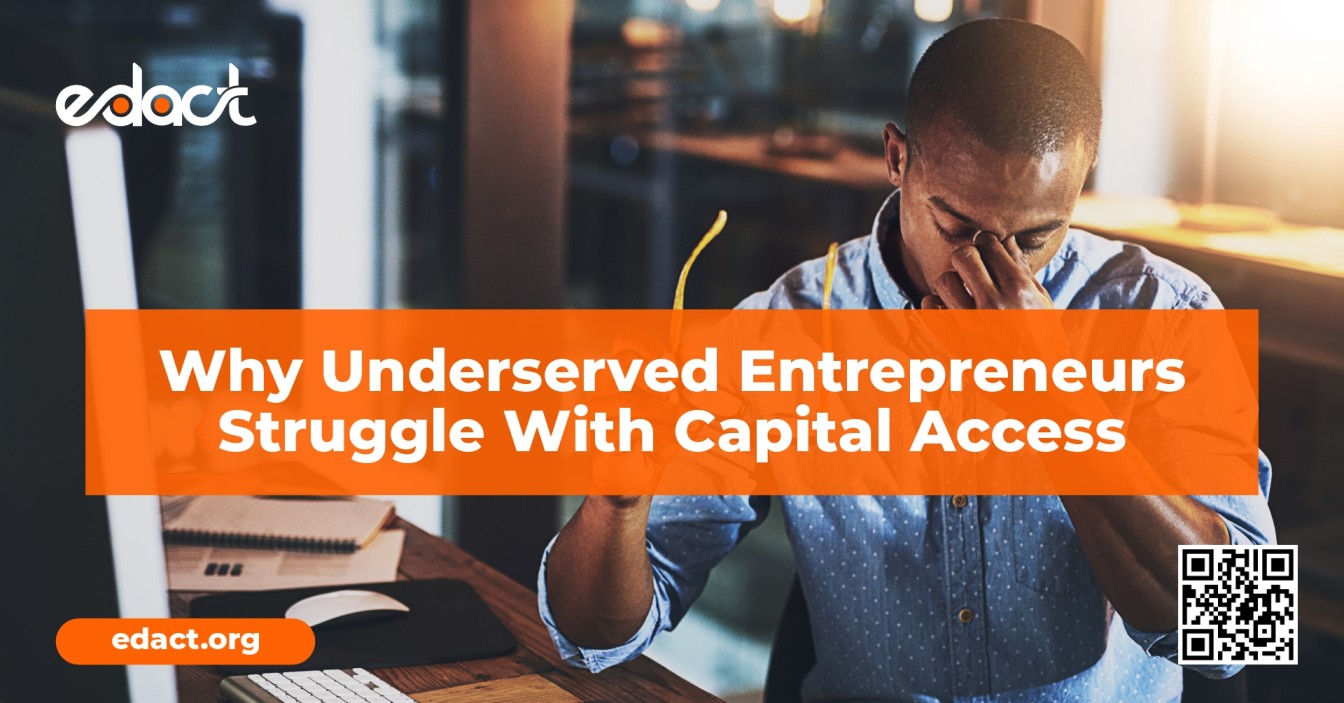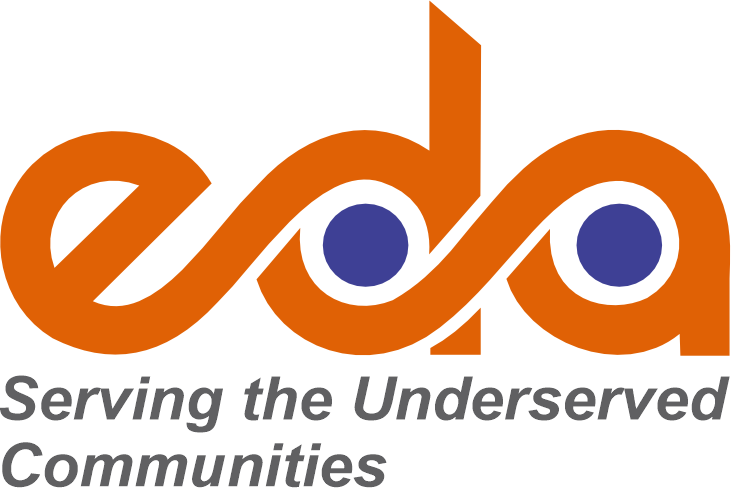
Why Underserved Entrepreneurs Struggle With Capital Access
And What You Can Do About It
For many entrepreneurs, turning a dream into a thriving business often starts with access to capital. But for underserved entrepreneurs, especially those in BIPOC communities, immigrants, and nonprofit founders, accessing that capital remains one of the biggest barriers to growth.
Despite having brilliant ideas, solid business plans, and the drive to succeed, these entrepreneurs are disproportionately denied the funding they need. The result? Limited growth, missed opportunities, and another cycle of exclusion from wealth-building systems.
At Equitable Development Action (EDACT), we’ve seen these struggles up close, and we’re working to change that.
1. Historical Disinvestment and Systemic Bias
Communities of color and underserved neighborhoods have long faced disinvestment from financial institutions. This legacy of redlining, credit discrimination, and underrepresentation has created generational barriers to wealth and trust in the financial system. Even today, BIPOC entrepreneurs are more likely to be denied loans and less likely to receive the full amount requested, even when credit profiles are similar to their white counterparts.
2. Limited Access to Financial Education
Many underserved entrepreneurs are navigating the financial world without guidance. Terms like “loan underwriting,” “business credit,” or “debt-to-income ratio” can feel confusing or inaccessible. Without clear, culturally responsive education on how lending works, many never apply, or do so with little chance of approval.
3. Lack of Collateral and Credit History
Traditional banks often require strong credit scores, years of financial records, and physical collateral, things many first-time entrepreneurs don’t yet have. This is especially true for those operating cash-based businesses, gig work, or starting in the nonprofit sector. The absence of these factors doesn’t reflect poor planning, just a lack of formal inclusion in traditional finance systems.
4. Relationship Gaps With Lenders
In many cases, entrepreneurs simply don’t know who to talk to. There's a significant gap in relationships between community-based businesses and lending institutions. Without trusted connections, many don't know what options are available or how to prepare for success.
5. Predatory Lending and Misinformation
Where banks fall short, predatory lenders step in, offering quick cash with sky-high interest rates. Many small businesses fall into debt traps due to lack of access to affordable, safe capital. Others fall prey to misinformation and myths about what it takes to get a loan.
So, What’s the Solution?
At EDACT, we believe knowledge is power and access is a right. That’s why we’re hosting a free, virtual workshop to bridge this gap:
Access to Capital: Virtual Workshop
Hosted by EDACT in partnership with Stearns Bank
📅 Thursday, July 31, 2025
🕚 11:00 AM – 1:00 PM CST
📍 Online | Free Registration Required
What You’ll Learn:
✔️ Clear steps to secure business funding
✔️ How lenders evaluate loan applications
✔️ Live Q&A with a Stearns Bank expert
✔️ Free tools and resources to support your growth
Whether you're just getting started or ready to scale, this session will give you the insights and confidence to move forward.
Click here to register now
Don’t let lack of capital block your vision. Get the knowledge, connections, and support you need, with EDACT by your side.
